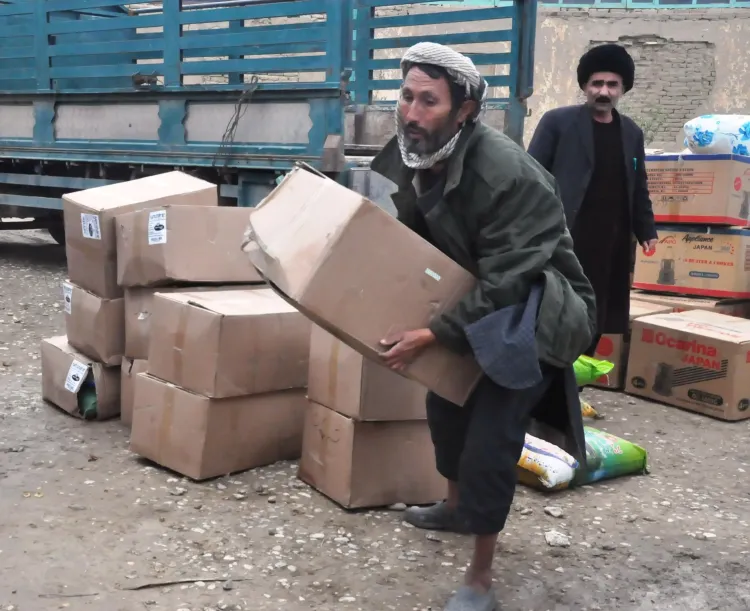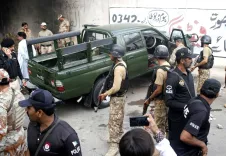Is India Providing Humanitarian Aid to Afghan Refugees Amidst Pakistan's Deportations?

Synopsis
Key Takeaways
- India is providing crucial humanitarian aid to Afghan refugees.
- Approximately 5,000 families are receiving essential food supplies.
- The Taliban government has publicly acknowledged India's support.
- Pakistan's deportations are framed around national security concerns.
- India's actions reflect a commitment to humanitarian principles and regional stability.
Kabul, May 20 (NationPress) As Pakistan escalates its mass deportation of Afghan refugees, India has stepped forward with vital humanitarian assistance for thousands of impacted families, reaffirming its enduring commitment to aid the Afghan populace during critical times.
The Taliban’s Ministry of Refugees and Repatriation reported that the Indian government has supplied essential food provisions to approximately 5,000 Afghan families recently expelled from Pakistan. This aid package, which includes 11 different food items, was distributed through the Kabul office of the Directorate of Refugees to those families identified as most in need.
India's support was officially recognized in a public statement from Maulvi Abdul Kabir, the Taliban-appointed Minister for Refugees and Repatriation. This acknowledgment, delivered by Zakirullah Zakir, head of the Prime Minister's Office's Coordination Department, was made during an official aid distribution event in Kabul.
Abdul Kabir expressed appreciation to both the government and citizens of India for their ongoing assistance, urging other nations and humanitarian organizations to enhance their support for displaced Afghans. “India’s help has arrived during a period of extreme hardship for our people,” he stated.
“We welcome all returnees and promise them safety and dignity under the general amnesty declared in the country,” he added.
Kalim al-Rahman Fani, Deputy Minister of Finance and Administration, also recognized that returnees encounter numerous challenges, despite the Islamic Emirate's efforts to provide housing and services. He mentioned that plans are underway for 58 new townships across 31 provinces to accommodate the influx.
Since April, Pakistan has expelled hundreds of thousands of Afghan migrants, citing national security concerns and alleged ties between the Taliban and India—claims that remain unverified and unaddressed by the Taliban.
In the midst of these regional tensions, India’s quiet yet steadfast humanitarian outreach contrasts sharply with Islamabad’s crackdown, highlighting New Delhi’s people-focused approach to diplomacy within the region.
India has consistently asserted that its assistance to Afghanistan springs from humanitarian motivations and a commitment to regional stability. This recent initiative underscores New Delhi’s persistent engagement with the Afghan populace, even without formal diplomatic ties to the Taliban administration.








